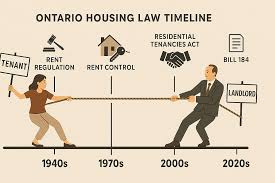When purchasing a condo, many buyers focus primarily on the purchase price, but it’s equally important to consider ongoing expenses such as property taxes and condo fees. These additional costs can significantly impact your monthly budget and long-term affordability. Understanding and managing these costs before making a purchase is essential to avoid financial strain.
Property taxes are annual fees paid to the local government based on the assessed value of your property. These taxes vary widely depending on your location, the size and value of the condo, and local tax rates. For instance, urban areas may have higher property taxes due to enhanced services or higher real estate values. Before purchasing a condo, ask the seller or real estate agent for the current property tax rate and the amount paid in the past year. Keep in mind that property taxes can increase annually, especially if the local government reassesses the property’s value. Factor in possible increases when calculating future expenses.
Condo fees (also known as strata fees or maintenance fees) are another important cost to watch. These monthly charges are collected by the condo association to cover building maintenance, amenities, insurance, repairs, landscaping, and more. In some luxury condos or buildings with extensive facilities—such as pools, gyms, or concierge services—fees can be particularly high. Review the condo’s budget and ask for a detailed breakdown of what the fees include. It’s also wise to review the status of the condo’s reserve fund, which is used for major repairs. A low or poorly managed reserve fund may lead to special assessments—large, one-time payments for emergency or deferred maintenance—which can be a financial burden.
It’s important to compare condo fees among similar properties in the area. Sometimes a condo may appear less expensive up front but have much higher fees, making it more costly in the long run. Also, check if any utilities are included in the fees. Condos that cover water, heat, or electricity may offer better value despite higher fees.
Buyers should also review the minutes of recent condo board meetings. These documents can reveal planned increases in fees, upcoming repairs, or any issues with the building’s finances or management. Pay attention to recurring problems or resident complaints, which may indicate deeper issues that could become expensive later.
To protect yourself, work with a real estate agent experienced in condo sales and consider hiring a lawyer to review the condo documents. They can help you understand financial statements, reserve fund studies, and bylaws, ensuring you aren’t caught off guard by hidden costs.
In conclusion, while condos can offer convenient and low-maintenance living, buyers must remain vigilant about property taxes and condo fees. By doing thorough research, understanding all monthly and future costs, and reviewing the financial health of the condo corporation, you can make an informed purchase and avoid unexpected expenses.
Search
Categories
Recent posts
Tags
- a louer
- affordable apartments Toronto
- affordable housing
- affordable housing solutions Canada
- Air Filters
- air quality
- apartment
- apartment close to public transport
- apartment for rent
- apartment for rent montreal
- apartment for rent Toronto
- apartment insurance
- appartement
- appliances
- ARTICLE
- available for rent
- background check
- bacteria
- best city to live in canada
- best healthcare
- bicycle
- bicycle path
- bike lane
- bike path
- bikes
- bill 16
- burglar
- buy a house
- buying a house
- carbon monoxide detector
- cars
- centris
- city
- cleaning
- cleaning products
- cleaning wood floors
- closet
- closet space
- clothing organizer
- compact rental units
- condo
- condo association laws
- condo fees
- condo for rent
- condo insurance
- construction budget
- construction contractors
- construction cost
- credit check
- decorating room
- digital transaction
- door lock
- doors
- downtown micro apartments
- electricity
- employment verification
- energy consumption
- energy cost
- energy saving
- engineered hardwood
- fire alarm
- fire detector
- fire extinguisher
- floor
- flooring
- for rent
- For rent in Montreal
- For rent in Toronto
- For rent in Vancouver
- for sale
- furniture
- gas
- healthy candles
- healthy lifestyle
- home
- house
- house for rent
- house for sale
- house garden
- house insurance
- house locks
- house plants
- immigrant
- importance of water leak detector
- indoor plants
- insurance
- intergenerational home
- intergenerational living
- interior designer
- investment
- landlord
- lease
- lease responsibility
- long term care facility
- low crime
- mattress
- micro-apartments Vancouver
- micro-units Toronto
- mls
- move to canada
- moving company
- Moving to canada
- moving truck
- multigenerational home
- multiplex
- nano-suites
- nano-suites Toronto
- new apartment
- new color
- oil
- old age home
- online house purchase
- Ontario
- paint colors
- passive income
- pet friendly apartment
- pet friendly plants
- planning for vacation
- plants
- porcelain tile
- property
- questions for apartment rental
- real estate
- real estate agent
- real estate broker
- real estate online
- real estate transaction
- realtor
- renal history
- rent
- rent an apartment
- rent control
- rent obligations
- rental
- rental board
- rental scam
- renting
- residential income
- residential lease
- residential rental
- revenue property
- safe area
- safe candle in apartment
- safe candle in house
- safe candles
- safety
- scam
- security
- sell a house
- seniors residence
- small apartments Vancouver
- smoke detector
- social media and real estate
- soy candle
- soy candles made with essential oils
- storage space
- student apartment
- student housing
- tenant
- tiny rentals Canada
- traffic
- trending color
- trending paint
- university student rental
- ventilation
- vinyl floor
- water alarm
- water damage
- water leak detector
- window frame
- window manufacturer
- windows
- wood floors



